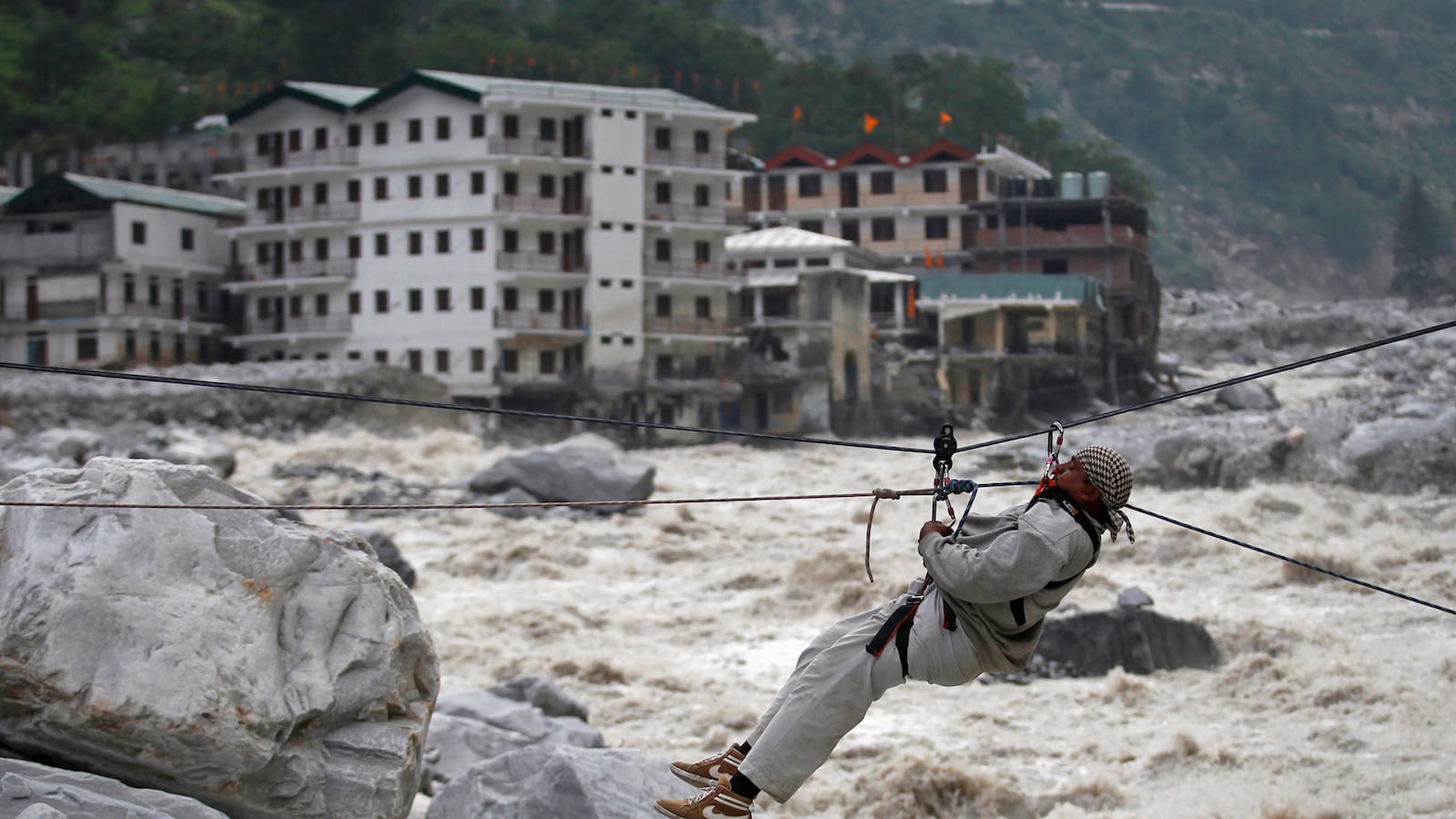Put it down to days of heavy rain in Mumbai too: I have not (yet) seen the gatherers of old clothes.
After a long spell of torrential rain, there's been catastrophic flooding this month in the northern hill state of Uttarakhand. The pictures of overflowing rivers, of buildings washed away, of survivors edging along muddy hillside paths, offer some clue to what has happened. Reality, as always, is probably far worse than the pictures can convey. The calamity may have killed as many as 5,000.

Plenty of relief efforts have already swung into action. But yes, at least so far, I've not seen or heard the appeals for old clothes.
That's worth remarking on, because after each of several great natural disasters in India over the last 15 years—the "supercyclone" in Orissa, 1999; the quake in Gujarat, 2001; the tsunami, 2004; the flash-flood in Ladakh, 2010; and more—there's been one constant: the appeals for old clothes. After at least three of those I listed, I remember groups of enthusiastic college students walking down our street. In voices we could hear in the recesses of our fourth-floor apartment, they implored us to open our hearts, and our cupboards and closets and suitcases, and hand over our old clothes. To help the victims of the disaster, of course.
Those previous times, I responded, as did several neighbors along my street. Each of those times, I traveled soon afterward to those disaster-struck areas, to help with relief and to write. Each time, I was struck by another reality: piles after great piles of discarded old clothes. In a village called Pudupettai that was swamped by the tsunami, for example, one pile was so deep that there were kids actually climbing an adjacent building and diving in, headfirst.
Fun for the kids, but a bite of reality for us who pat ourselves on the back for our generosity in handing over old clothes. This reality: nobody wants them.
And why should they? For one thing, they are often completely inappropriate: I've seen wool sweaters sent to tropical Tamil Nadu. I've seen fluorescent pants that women in Gujarat who wear only saris stare bemusedly at. For another, even people hit by disasters retain a certain dignity. They are not interested in the dregs from my stash of clothes.
Though this is a hard lesson. After the 2001 quake in Gujarat, I spent a week working there and losing count of the piles of discarded old clothes. Soon after I returned, I was asked to speak to the students at a city school about my experience. “Don’t send old clothes” was one of the things I said. It didn’t go over well. It incensed the students, to the extent that they actually shouted me down. They had all collected old clothes for quake victims, and they could not stomach the thought that the victims did not want them.
I cringed when one actually screamed at me: "How can beggars be choosers?"
And yet that question more or less captured the essence of the problem. Victims they may be, but they are not beggars. They cannot be, must not be, the recipients of our patronizing efforts at what we pretend is generosity, but too often is just the callous act of getting rid of stuff we don't want. Too often, it's just our supercilious attitude to this thing called relief.
So far, the appeals I have seen for Uttarakhand have not mentioned old clothes. One appeal I got by email does ask for children's clothes, but says this: “Be considerate and thoughtful while giving clothes.” Perhaps news of those piles has spread, I don't know.
“Considerate and thoughtful”: not words I could have used for myself after an earlier disaster. A week after “donating” several old shirts, I was in a tiny Gujarat village called Vamka with a relief team.
One dark night, I'm taking a leak on the road—toilet facilities were destroyed by the quake—when it strikes me that the sound I'm responsible for seems a little unusual. It strikes me that I'm peeing on fabric of some kind. It strikes me that it might just be that red shirt I handed over to that band of enthusiastic students, back in Mumbai.
It strikes me that what victims of a great disaster need from the rest of us, above all, is a measure of thoughtfulness.






